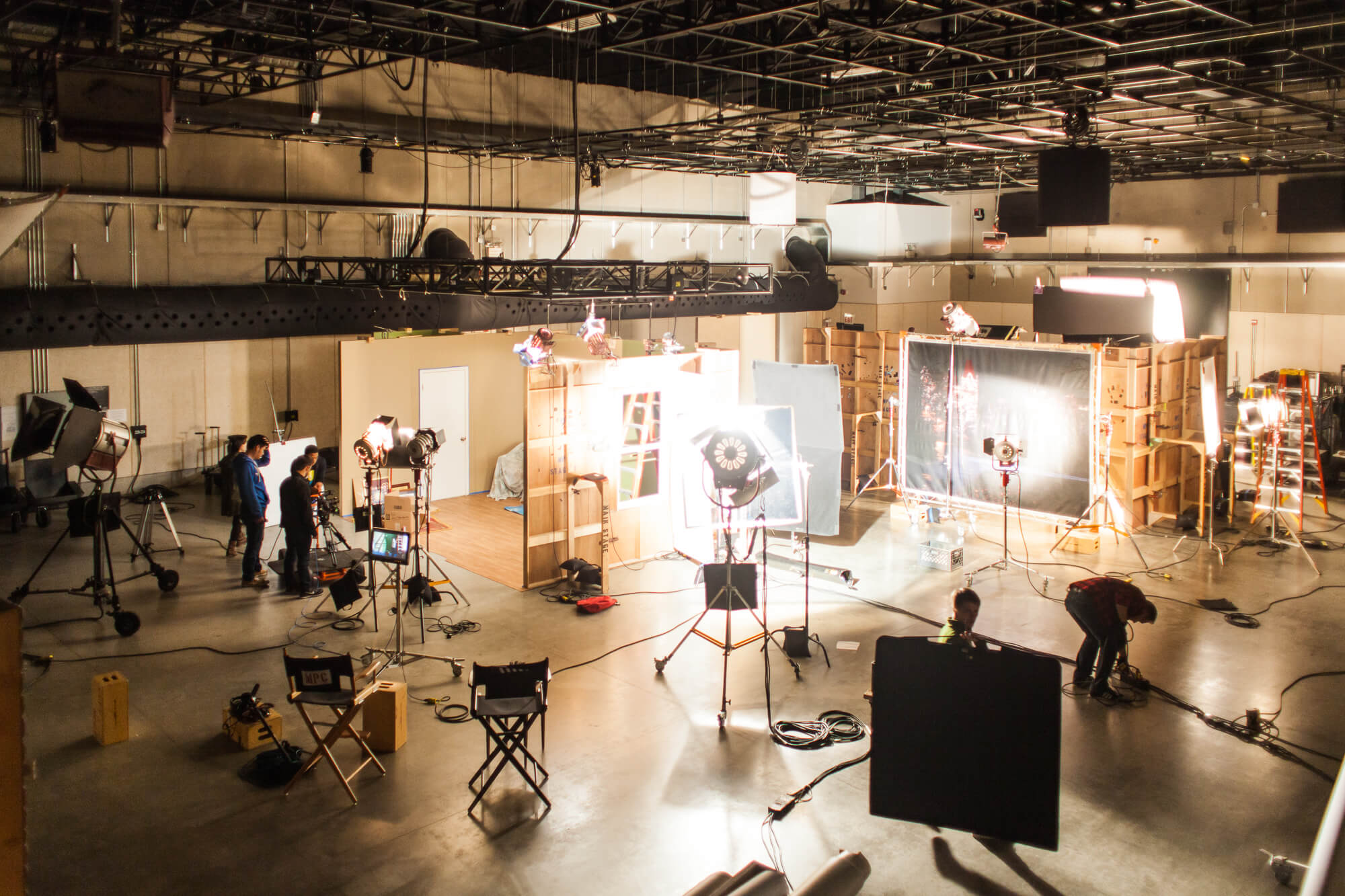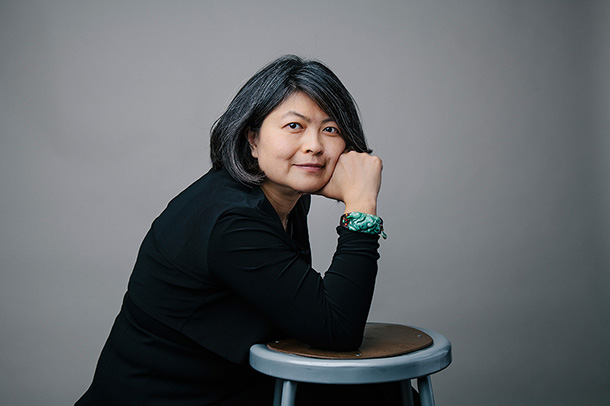Film and Television (BFA)
Creating film and television is a team effort. At Columbia College Chicago, that’s what we teach you from day one. You can have the latest industry-standard equipment, state-of-the-art production facilities, amazing locations, and talented actors at your fingertips, but a film is only as good as the people you work with. The industry runs on collaboration.
As a Film and Television (BFA) major, you’ll choose from one of eight concentrations and collaborate with your peers to create thought-provoking films. Each individual brings their own strengths to projects, whether it’s the ability to light a shot perfectly, write a compelling script, or edit the perfect cut. By working closely with a diverse group of students, you’ll gain perspective and learn more about yourself as a filmmaker.
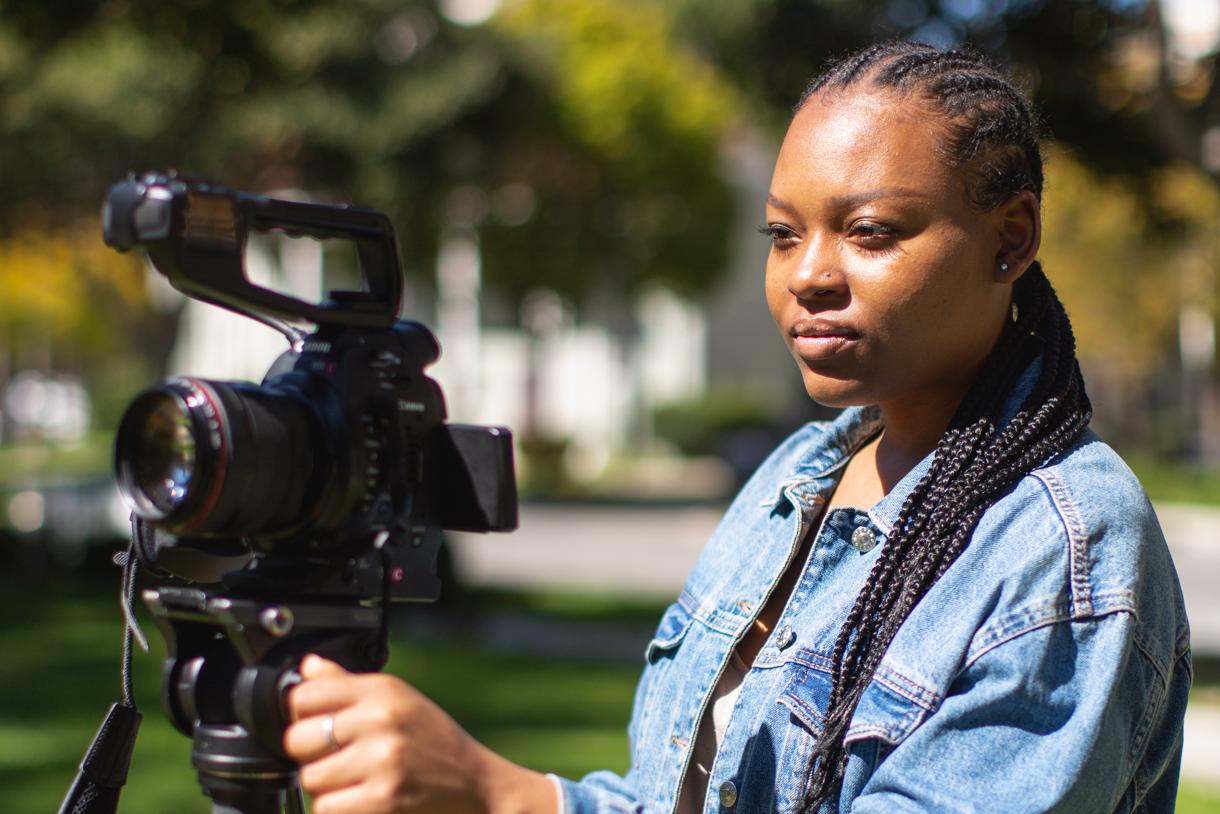
Degrees Available
Columbia College Chicago offers two similar options for film-related degrees: a Bachelor of Arts (BA) in Film and Television and a Bachelor of Fine Arts (BFA) in Film and Television. The Film and Television BA might be the best choice for you if you want a broad overview of filmmaking or want to create more experimental work. The Film and Television BFA is about specialization: you'll select a concentration and focus your studies in one aspect of the filmmaking process.
If you plan to apply directly to the BFA program, you’ll need to include some additional materials.
View course requirements:
Concentrations
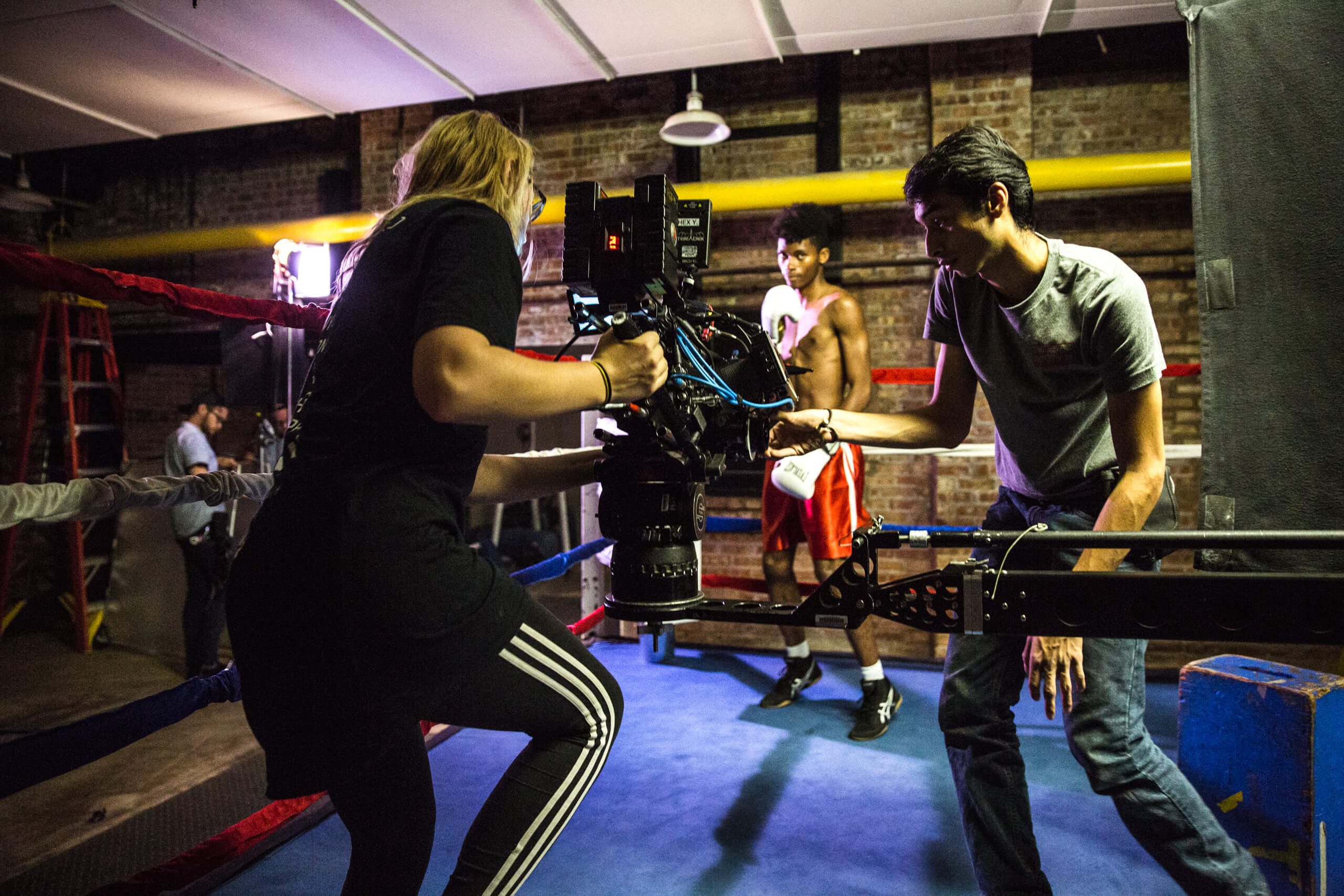
Cinematography
Our Cinematography students acquire proficiency in photography for the screen. You’ll conceive and produce images that advance the themes of a script as you work closely with the film’s director.
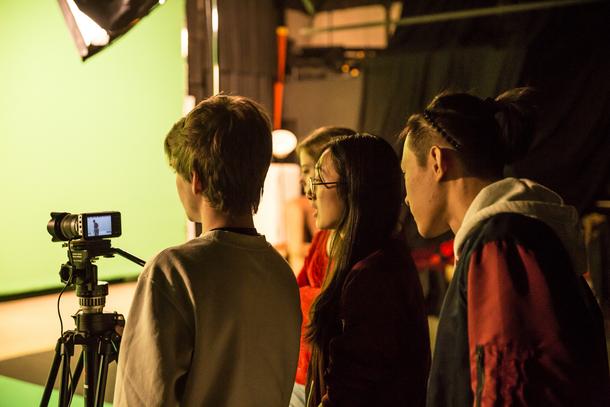
Cinema Visual Effects
As a Cinema Visual Effects student, you’ll study the technical and creative application of visual effects and the ways they support cinematic stories.
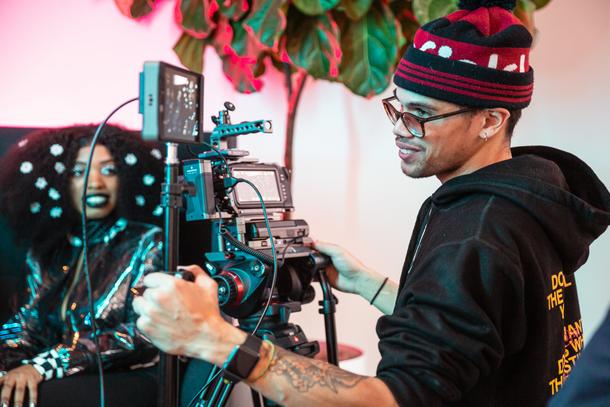
Directing
This concentration trains students in all aspects of film directing. Our courses allow you to hone your storytelling craft in collaboration with screenwriters, casting directors, editors, cinematographers, and production designers.
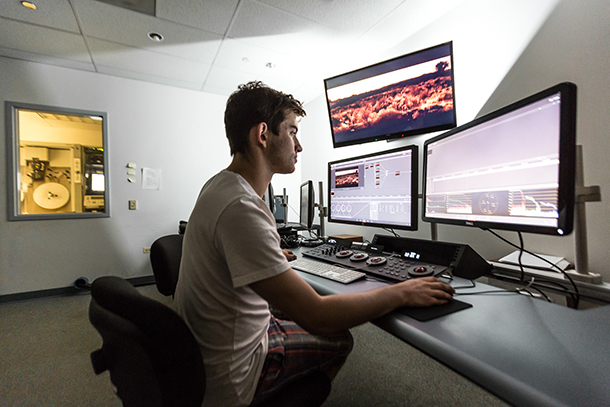
Editing and Post-Production
Our Editing and Post-Production students learn to edit raw footage, manipulate audio files, and add digital effects to film. You’ll be ready for a career in film editing and other post-production specializations.

Producing
This concentration focuses on production management, legal affairs, and creative production techniques. You’ll choose production electives to learn crucial techniques for casting performers, scouting locations, pitching films, and polishing scripts.
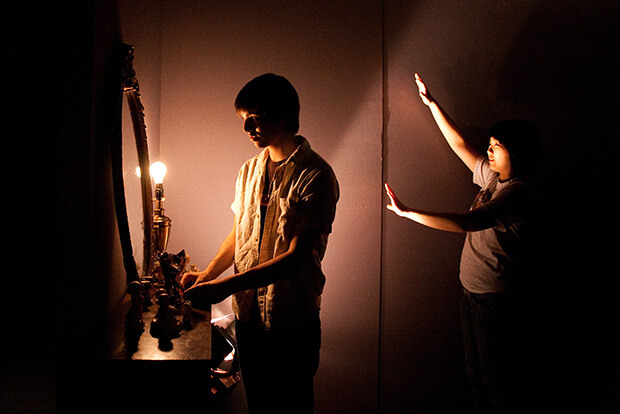
Production Design
This concentration provides training and practice in all aspects of cinema production design. As a Production Design student, you’ll design and construct props, costumes, makeup, studio sets, set decorations, and special effects. The curriculum emphasizes collaboration with directors, producers, and cinematographers; pre-visualization through research and concept art; time and resource management; and handcrafted fabrications.

Screenwriting
Screenwriting students hone their writing and communication skills to construct cinematic and emotional experiences for their audiences. You will craft and edit scripts with your peers and master the fundamental elements of storytelling.
In the Classroom
What to expect your first year
You’ll take two foundations courses: Cinema Notebooks, a course focused on critical analysis, and Cinema Image and Process, a hands-on course that let’s you put theory into practice while making films. These courses are often taught back-to-back, a sequence that mirrors what it’s like to be on a production set. You’ll spend much of your day learning and working with the same group of students.
You’ll also have the opportunity to work on the set of one of the hundreds of films made at Columbia each year. We encourage interaction among our freshmen, sophomores, juniors, seniors, and graduate students, and often host meet and greets that let you network with fellow students. You’re limited only by your own time, energy, and ambition when it comes to working on films at Columbia.
What to expect your last year
You’ll work with other BFA and BA students to execute and finish a short, festival-quality film. Your role on this project will directly relate to your concentration. Faculty members will supervise and assist you and your fellow filmmakers on this project throughout your senior year.
Outside the Classroom
You’ll have endless opportunities to engage with Columbia College Chicago’s passionate film community. Here are a few examples of exciting events that take place outside the classroom:
- Advance Screenings: Watch independent and major studio releases in our own Film Row Cinema and around Chicago before they play in the theatres.
- FrameWork: A series of student-produced video interviews that allow seniors and graduate students to talk about their filmmaking processes.
- Film Festivals: Chicago hosts several renowned film festivals. We encourage students to submit their films and volunteer.
- Volunteer opportunities: Students are invited to volunteer at the prestigious Chicago International Film Festival and other cultural events in Chicago.
- Cinema and television-related student organizations including the Columbia Horror Picture Show, Editors Guild of Columbia, The Experimental Film Society, and the Cult Cinema Club.
Semester in LA
Want to see what Hollywood is all about? As a Film and Television student, you can take part in Semester in LA (SiLA), an intensive 15-week course that puts you in touch with industry professionals and gives you unparalleled experience in the area of your choosing. Visit the SiLA website for more information about this remarkable experience and the kinds of classes offered each semester.
Alumni
Columbia has produced many successful alumni through the years. These alumni find work in the industry right out of college, and some have gone on to win Oscars, Emmys, and Golden Globes.
Alumni highlights
Here is a small sample of our alumni success stories:
- Len Amato ’75 is president of HBO Films.
- Ayanna Floyd MFA ’98 was coexecutive producer for the TV shows Empire and Falling Skies, and has writing credits on episodes of Empire, The Chi, Falling Skies, and Private Practice.
- Tiffany S. Griffith ’92 is an Emmy Award-winning dialogue editor for shows like Stranger Things, American Gods, Insecure, and House M.D.
- Janusz Kaminski ’87 is a two-time Academy Award-winning cinematographer whose credits include Saving Private Ryan, Schindler’s List, Lincoln, and The Post.
- Declan Quinn ’79 has film credits as a cinematographer and director of photography for Leaving Las Vegas, 28 Days, and My Next Guest Needs No Introduction with David Letterman.
- Christian Sprenger ’07 is the Emmy Award-winning cinematographer for the TV shows Atlanta, GLOW, Baskets, and Last Man on Earth.
- Lena Waithe ’06 is an Emmy Award-winning writer, actress, and producer on shows and films such as Dear White People, Bones, Master of None, and The Chi, and was named one of TIME magazine’s 100 most influential people of 2018.
- Annick Wokan ’05 is an associate producer on the award-winning TV show Game of Thrones.
Creative Spaces and Facilities
Related Minors
Faculty
Our faculty members are working professionals, filmmakers, documentarians, and editors who stay up-to-date with industry trends and teach them in the classroom. They’re dedicated to giving you a real-world education, and they’re great resources for jobs and references once you graduate.

